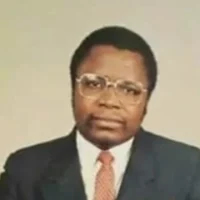On the first day of January 1979, the United States de-recognized the Republic of China (also known as Taiwan or the ROC) as the official government of China, recognizing the People’s Republic of China (the PRC) instead. While this declaration helped to strengthen the U.S. relationship with the PRC against the Soviet Union, it created… Read More "Officially Unofficial – The Opening of the American Institute in Taiwan (AIT)"
Taking the Chill off the Cold War: The First Reagan-Gorbachev Summit
The Geneva Summit of 1985 was the first meeting between President Reagan and Soviet General Secretary Gorbachev to talk about the arms race, particularly the Strategic Defense Initiative, and to establish personal relations between the leaders of the world’s superpowers. Held November 19, 1985 at a chateau owned by the Aga Khan, the first meeting went over… Read More " Taking the Chill off the Cold War: The First Reagan-Gorbachev Summit"
Warriors without Weapons – Recruiting FSOs to Rebuild Iraq
In the lead-up to the 2003 American invasion of Iraq, State Department officials realized they would need to deploy scores of Foreign Service Officers familiar with the language and culture of Iraq to put the country back on the path to successful governance once the fighting was over. Finding officers with the necessary skills to… Read More "Warriors without Weapons – Recruiting FSOs to Rebuild Iraq"
Liberia erupted in violence on April 12, 1980 as Master Sergeant Samuel Kanyon Doe seized power from President William Tolbert, ending 133 years of political dominance by Americo-Liberians. Americo-Liberians traced their ancestry to African Americans and Black British subjects who immigrated to Africa and became the founders of the Republic of Liberia, in power from 1847-1980. In October… Read More "Surviving the Coup that Transformed Liberia"
Iran-Contra: Who Knew What When?
In the Iran-Contra Affair, Colonel Oliver North and others within the National Security Council and CIA used back channels and secret bank accounts to funnel money from arms deals with Iran, which was then under an arms embargo, to the Contra rebels fighting the Marxist Sandinistas in Nicaragua. One aim of this plan was to… Read More "Iran-Contra: Who Knew What When?"
Implementing the 1993 Oslo Peace Accords
The 1993 Oslo Accords were a historic point in Arab-Israeli relations. Hammered out in complete secrecy in Oslo, Norway, by Israeli and Palestinian negotiators acting without intermediaries, the Oslo Accords forced both sides to come to terms with each other’s existence. The Accords at the time were viewed as an extraordinary breakthrough. Many analysts now… Read More "Implementing the 1993 Oslo Peace Accords"
Pablo Escobar and the Siege of Colombia’s Palace of Justice
Colombian drug lord Pablo Escobar, the wealthiest criminal in history once responsible for 80 percent of the cocaine entering the U.S., was also believed to be the force behind the siege on Colombia’s Supreme Court on November 6, 1985. The assault marks one of the deadliest conflicts between the Colombian government and revolutionary groups. By… Read More "Pablo Escobar and the Siege of Colombia’s Palace of Justice"
South Africa’s Truth and Reconciliation Commission
After nearly 50 years of brutal apartheid in South Africa, it is almost impossible to imagine how people could coexist peacefully. However, the new, post-apartheid government demonstrated the power of reconciliation, which eventually served as a blueprint for similar initiatives throughout the world. Apartheid, the racial segregation system in South Africa, lasted from 1948 to… Read More "South Africa’s Truth and Reconciliation Commission"
Pierre Trudeau: One Long Curve, Full of Turning Points
With the October 2015 election of Justin Trudeau as Prime Minister of Canada, we take a look back at his father, Pierre Elliot Trudeau, one of the most influential and memorable Prime Ministers in Canada’s history. He served as Prime Minister from 1968 to 1979 and then again from 1980 to 1984. Throughout his time in power… Read More "Pierre Trudeau: One Long Curve, Full of Turning Points"
The Murder of Yitzhak Rabin, Israel’s Warrior for Peace
The assassination of 73-year old Israeli Prime Minister Yitzhak Rabin came at the end of a peace rally in Tel Aviv in favor of the Oslo Accords. Rabin had served two terms as Prime Minister, from 1974-1977 and again from 1992 until his death. He was a soldier with extensive experience combatting Arab states, serving… Read More "The Murder of Yitzhak Rabin, Israel’s Warrior for Peace"

